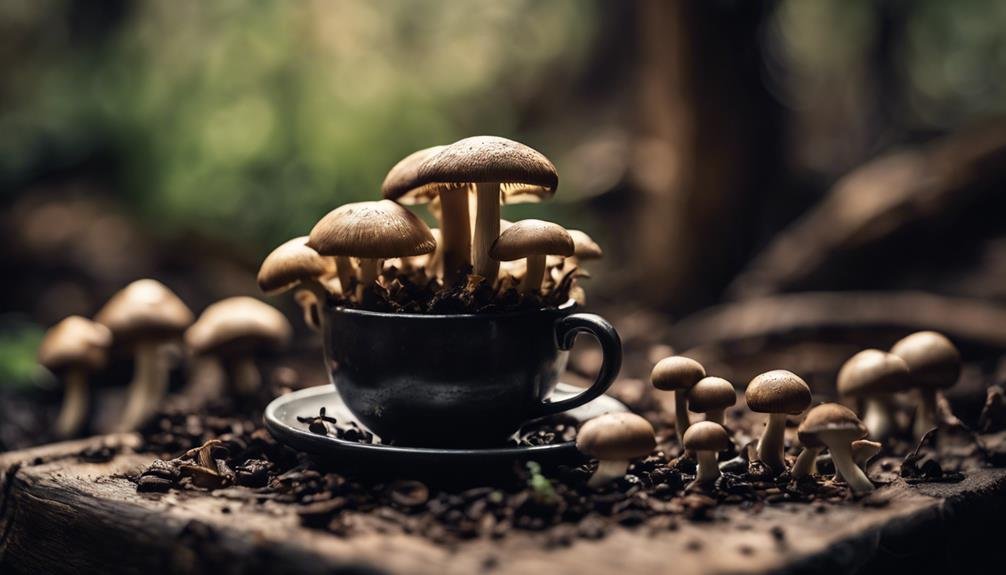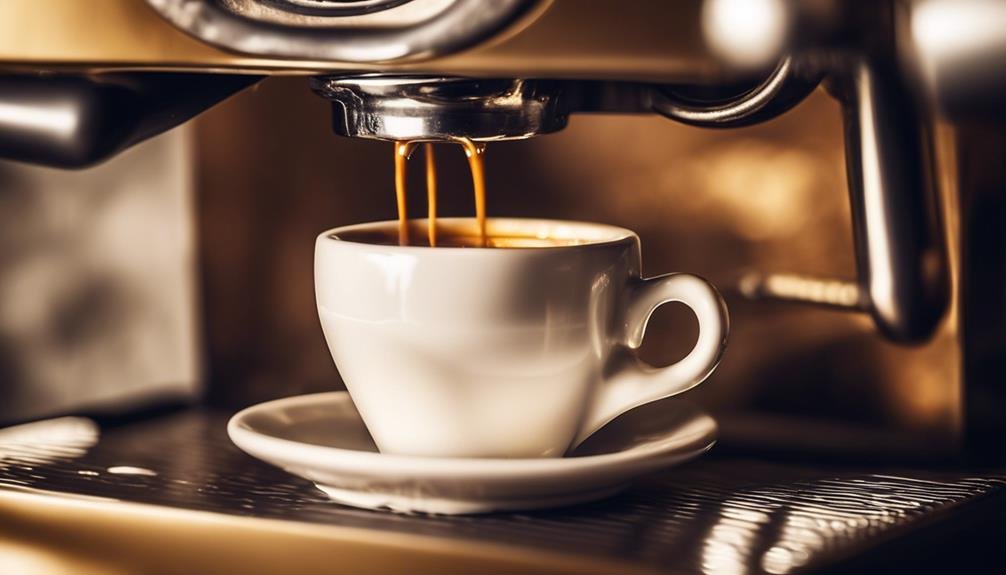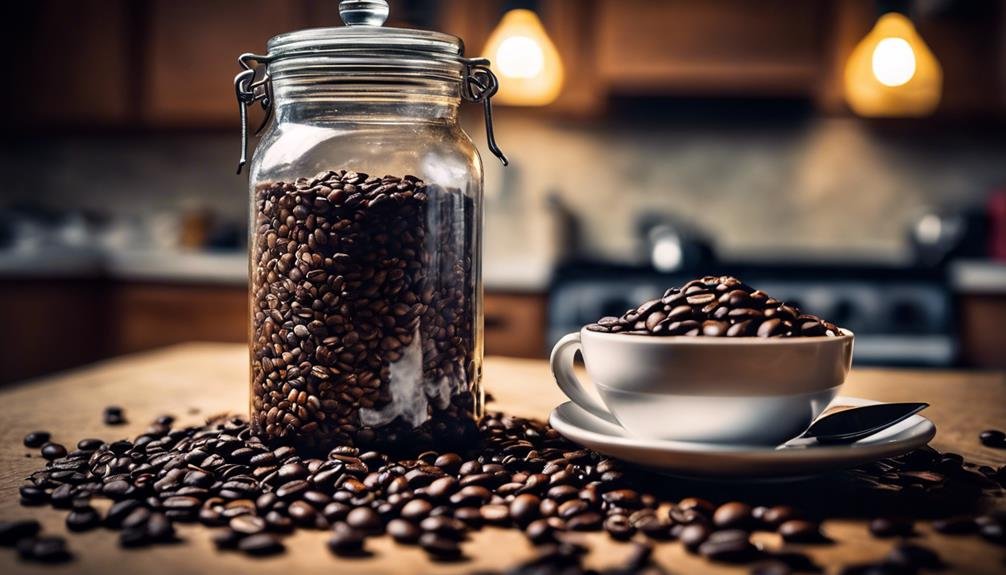For many of us, coffee is a daily essential to start the day off right. But have you ever wondered how long it takes for the effects of coffee to kick in? The answer is not as straightforward as you might think.
There are many factors that influence caffeine absorption, and therefore, the speed at which coffee takes effect. These factors include:
- The amount of coffee consumed
- Your individual caffeine sensitivity
- Your metabolism
- Your body weight and overall health
Despite these variations, there are some general guidelines for how long it takes for coffee to kick in. Typically, you can expect to feel the effects of caffeine within 30 minutes of consuming a cup of coffee. However, some people might feel the effects more quickly, while others may take longer.
In the following sections, we’ll explore the process of coffee absorption and metabolism, the factors that affect coffee activation time, and the duration of coffee’s effects. We’ll also talk about the energy-boosting effects of coffee and answer some frequently asked questions about the topic.
Coffee Absorption and Metabolism
Once you drink a cup of coffee, the caffeine is quickly absorbed into the bloodstream and distributed throughout the body. In fact, caffeine can reach peak levels in the blood within 15-120 minutes after consumption, depending on various factors that affect caffeine absorption.
Caffeine is metabolized in the liver by enzymes, primarily CYP1A2. The small intestine is where most of the caffeine is absorbed into the bloodstream. Once in the bloodstream, caffeine travels to the brain and crosses the blood-brain barrier, where it can bind to adenosine receptors.
When caffeine binds to adenosine receptors, it blocks the reception of adenosine, a neurotransmitter that is responsible for promoting sleep and suppressing arousal. This results in increased alertness and wakefulness, which is why coffee is often used to help people feel more awake and focused.
Coffee Absorption and Duration
The duration of caffeine’s effects is determined by several factors, including the amount of coffee consumed, individual differences in caffeine metabolism, and the presence of other substances that can influence caffeine absorption.
The half-life of caffeine in the body is around 5-6 hours, which means it takes this long for half of the caffeine ingested to be eliminated from the body. However, the effects of caffeine can last much longer than this, up to 10-12 hours in some individuals.
| Factors Affecting Caffeine Absorption and Duration | Effect on Caffeine Absorption and Duration |
|---|---|
| The amount of coffee consumed | Higher doses of caffeine can prolong the duration of its effects. |
| Individual differences in caffeine metabolism | Some people are able to metabolize caffeine more quickly than others, leading to shorter caffeine duration. |
| Other substances consumed with caffeine | Some substances, such as nicotine, can enhance caffeine absorption and prolong its effects. |
Overall, the absorption and metabolism of caffeine in the body are complex processes that depend on various factors. Understanding how caffeine works and how it’s absorbed and metabolized can help you make informed decisions about when and how much coffee to consume to achieve the desired effects.
Factors Affecting Coffee Activation Time
While the average time for coffee to take effect is around 20 to 30 minutes, the activation time can vary greatly depending on several factors. These include:
- Caffeine sensitivity: Individuals who are more sensitive to caffeine may feel its effects sooner than those with a higher tolerance.
- Amount of coffee consumed: The more coffee consumed, the longer it may take for the body to absorb and process the caffeine.
- Pre-existing conditions: Certain medical conditions or medications can affect how quickly the body processes caffeine and may cause a delay in its effects.
- Food consumption: Eating food prior to or immediately after drinking coffee can impact how quickly the body absorbs caffeine.
- Stress levels: High stress levels can slow down caffeine absorption, making it take longer for the effects to kick in.
- Sleep patterns: Lack of sleep can make an individual more sensitive to caffeine and cause the effects to be felt sooner.
It is important to note that the effects of coffee may also vary depending on the individual’s overall health, age, weight, and metabolic rate.
Coffee and Energy Boost
Coffee is a popular beverage loved for its energizing effects. The caffeine in coffee is a central nervous system stimulant that increases wakefulness and focus. Drinking coffee can help you feel more alert and awake, and may even improve your productivity and performance.
The amount of caffeine in any given cup of coffee can vary depending on factors such as the type of coffee, the brewing method, and the amount of coffee used. A typical cup of coffee contains an average of 95 milligrams of caffeine, although this can range from 30 to 200 milligrams.
When you drink coffee, the caffeine is quickly absorbed into your bloodstream and transported to your brain. Once there, it binds to adenosine receptors, which normally help regulate sleep and wakefulness. By blocking these receptors, caffeine can increase the release of other neurotransmitters like dopamine and norepinephrine, leading to increased alertness and energy.
The energy-boosting effects of coffee can last for several hours, depending on the individual and the amount of caffeine consumed. However, it’s important to note that caffeine can also have negative effects, such as jitters, anxiety, and disturbed sleep.
Duration of Coffee’s Effects
Caffeine is a stimulant that can have a variety of effects on the body, including increased alertness and wakefulness. The duration of these effects can vary depending on individual factors and the amount of coffee consumed.
How long do the effects of caffeine last?
The effects of caffeine can typically be felt within 15 to 45 minutes after consumption and can last for several hours. However, the duration of caffeine’s effects can vary depending on the individual’s sensitivity to caffeine, the amount consumed, and other factors.
For some individuals, caffeine’s effects may last up to 12 hours, while others may only feel the effects for a few hours.
Factors that affect caffeine metabolism
Individual differences in caffeine metabolism can impact how long the effects of caffeine last. Factors such as age, weight, and overall health can all play a role in how the body processes caffeine.
Research has shown that caffeine metabolism slows as we age, meaning that older individuals may feel the effects of caffeine for a longer period of time.
Individual variations in caffeine sensitivity
The effects of caffeine can also vary depending on an individual’s sensitivity to caffeine. Some people may feel the effects of caffeine more strongly than others, meaning that the same amount of coffee may have a different impact on different individuals.
Additionally, some people may develop a tolerance to caffeine over time, meaning that they may need to consume more coffee to achieve the same effects.
Conclusion
The duration of coffee’s effects can vary depending on individual factors and the amount consumed. While caffeine’s effects typically last for several hours, individual variations in caffeine metabolism and sensitivity can impact how long these effects last.
FAQs – How Long Does It Take for Coffee to Kick In?
If you’re an avid coffee drinker, you’ve probably asked yourself this question multiple times. Here are the answers to some frequently asked questions about how long it takes for coffee to take effect:
Does coffee kick in immediately?
No, coffee does not kick in immediately. It usually takes around 15-45 minutes for the effects of caffeine to be felt, depending on individual factors such as metabolism, body weight, and caffeine tolerance.
Why do some people feel the effects of coffee faster than others?
Individual differences in caffeine sensitivity can contribute to variations in how long it takes for coffee to kick in. People who are more sensitive to caffeine may feel its effects more quickly and intensely, while those with a higher tolerance to caffeine may take longer to feel its effects.
What can I do to make coffee take effect faster?
Ingesting caffeine on an empty stomach can help it take effect more quickly. Additionally, some studies suggest that consuming coffee with a small amount of sugar can enhance caffeine absorption, leading to quicker effects.
How long do the effects of coffee last?
The effects of coffee typically last between 3-5 hours, although this can vary depending on individual factors. It’s important to note that consuming caffeine too close to bedtime can disrupt sleep patterns, leading to sleep disturbances and fatigue.
Can I become immune to the effects of coffee?
While some people may develop a tolerance to caffeine over time, meaning it takes more caffeine to feel the same effects, it is unlikely that a person will become completely immune to the effects of coffee.
Is coffee a reliable way to increase alertness and focus?
While coffee can increase alertness and focus in the short term, overconsumption of caffeine can lead to jitters, anxiety, and decreased performance. It’s best to consume coffee in moderation and pair it with other healthy habits like exercise and adequate sleep for optimal productivity and performance.













